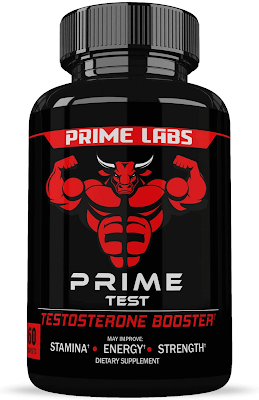In the realm of health and wellness, few factors are as critical as controlling blood sugar levels. Whether you're a fitness enthusiast or simply someone looking to lead a healthier lifestyle, understanding the significance of blood sugar management is key. In this blog post, we'll delve into the scientific reasons behind the importance of controlling blood sugar, and why it should be a top priority in your quest for optimal well-being.
1. Blood Sugar Basics:
- Blood sugar, or glucose, is the primary source of energy for our cells.
- Maintaining stable blood sugar levels is crucial for overall health and vitality.
2. Preventing Diabetes:
- High blood sugar levels are a hallmark of diabetes, a chronic condition with serious health implications.
- Diabetes can lead to heart disease, kidney problems, nerve damage, and even vision loss.
3. Weight Management:
- Blood sugar fluctuations can lead to increased hunger and cravings for sugary foods.
- High blood sugar levels promote fat storage, making weight management more challenging.
4. Energy and Mood:
- Spikes and crashes in blood sugar can result in mood swings and fatigue.
- Stable blood sugar levels help maintain consistent energy levels and a positive mood.
5. Cognitive Function:
- High blood sugar levels have been linked to cognitive decline and an increased risk of Alzheimer's disease.
- Controlling blood sugar may support better cognitive function and brain health.
THE BEST SUPPLEMENT FOR BLOOD SUGAR HERE!
6. Heart Health:
- Elevated blood sugar levels can damage blood vessels and increase the risk of cardiovascular disease.
- Managing blood sugar is essential for a healthy heart.
7. Longevity:
- Some studies suggest that maintaining stable blood sugar levels may contribute to a longer, healthier life.
- Reducing the risk of chronic diseases associated with high blood sugar can lead to a higher quality of life in the long run.
8. Diet and Lifestyle Factors:
- A balanced diet with a focus on whole grains, lean proteins, and healthy fats can help regulate blood sugar.
- Regular physical activity plays a crucial role in blood sugar control.
9. Monitoring and Awareness:
- Regular blood sugar monitoring, especially for individuals at risk of diabetes, is essential.
- Awareness of your blood sugar levels empowers you to make informed decisions about your diet and lifestyle.
10. Consultation with Healthcare Professionals:
- If you have concerns about your blood sugar or are at risk of diabetes, consult with a healthcare provider.
- They can provide personalized guidance and interventions to help you manage your blood sugar effectively.
Well... wrapping up!
Controlling blood sugar isn't just about avoiding sugar crashes or managing diabetes; it's about safeguarding your long-term health and well-being. By understanding the science behind blood sugar regulation and taking proactive steps to maintain stable levels, you can enhance your energy, mood, cognitive function, and overall quality of life. Remember, your health is an investment, and the dividends of managing your blood sugar will pay off for years to come. So, let's prioritize the sweet truth of blood sugar control and savor the benefits of a healthier, happier life.
THE BEST SUPPLEMENT FOR BLOOD SUGAR HERE!
References:
Kahn, C. R. (1994). Banting Lecture: Insulin action, diabetogenes, and the cause of type II diabetes. Diabetes, 43(8), 1066-1084.
American Diabetes Association. (2014). Diagnosis and classification of diabetes mellitus. Diabetes Care, 37(Supplement_1), S81-S90.
American Diabetes Association. (2019). Cardiovascular disease and risk management: Standards of medical care in diabetes—2019. Diabetes Care, 42(Supplement 1), S103-S123.
Blüher, M. (2019). Obesity: global epidemiology and pathogenesis. Nature Reviews Endocrinology, 15(5), 288-298.
Boden, G., & Shulman, G. I. (2002). Free fatty acids in obesity and type 2 diabetes: defining their role in the development of insulin resistance and β-cell dysfunction. European Journal of Clinical Investigation, 32(Suppl 3), 14-23.
Korczak, R., & Slattery, D. (2010). Sugars and health: a review. Food Australia, 62(3), 96-104.
Strachan, M. W., & Reynolds, R. M. (2012). Marioni, R., & Price, J. F. Diabetes, cognitive impairment, and dementia. Diabetologia, 55(6), 1445-1453.
Rönnemaa, E., Zethelius, B., Sundelöf, J., & Sundström, J. (2008). Impaired insulin secretion increases the risk of Alzheimer disease. Neurology, 71(14), 1065-1071.
Brownlee, M. (2001). Biochemistry and molecular cell biology of diabetic complications. Nature, 414(6865), 813-820.
Barzilai, N., Huffman, D. M., Muzumdar, R. H., & Bartke, A. (2012). The critical role of metabolic pathways in aging. Diabetes, 61(6), 1315-1322.
American Diabetes Association. (2019). Nutrition therapy recommendations for the management of adults with diabetes. Diabetes Care, 42(Supplement 1), S46-S60.
Colberg, S. R., Sigal, R. J., Fernhall, B., Regensteiner, J. G., Blissmer, B. J., Rubin, R. R., ... & Braun, B. (2010). Exercise and type 2 diabetes: the American College of Sports Medicine and the American Diabetes Association: joint position statement. Diabetes Care, 33(12), e147-e167.
American Diabetes Association. (2020). Standards of medical care in diabetes—2020 abridged for primary care providers. Clinical Diabetes, 38(1), 10-38.
Davies, M. J., D'Alessio, D. A., Fradkin, J., Kernan, W. N., Mathieu, C., Mingrone, G., ... & Buse, J. B. (2018). Management of hyperglycemia in type 2 diabetes, 2018. A consensus report by the American Diabetes Association (ADA) and the European Association for the Study of Diabetes (EASD). Diabetes Care, 41(12), 2669-2701.
















